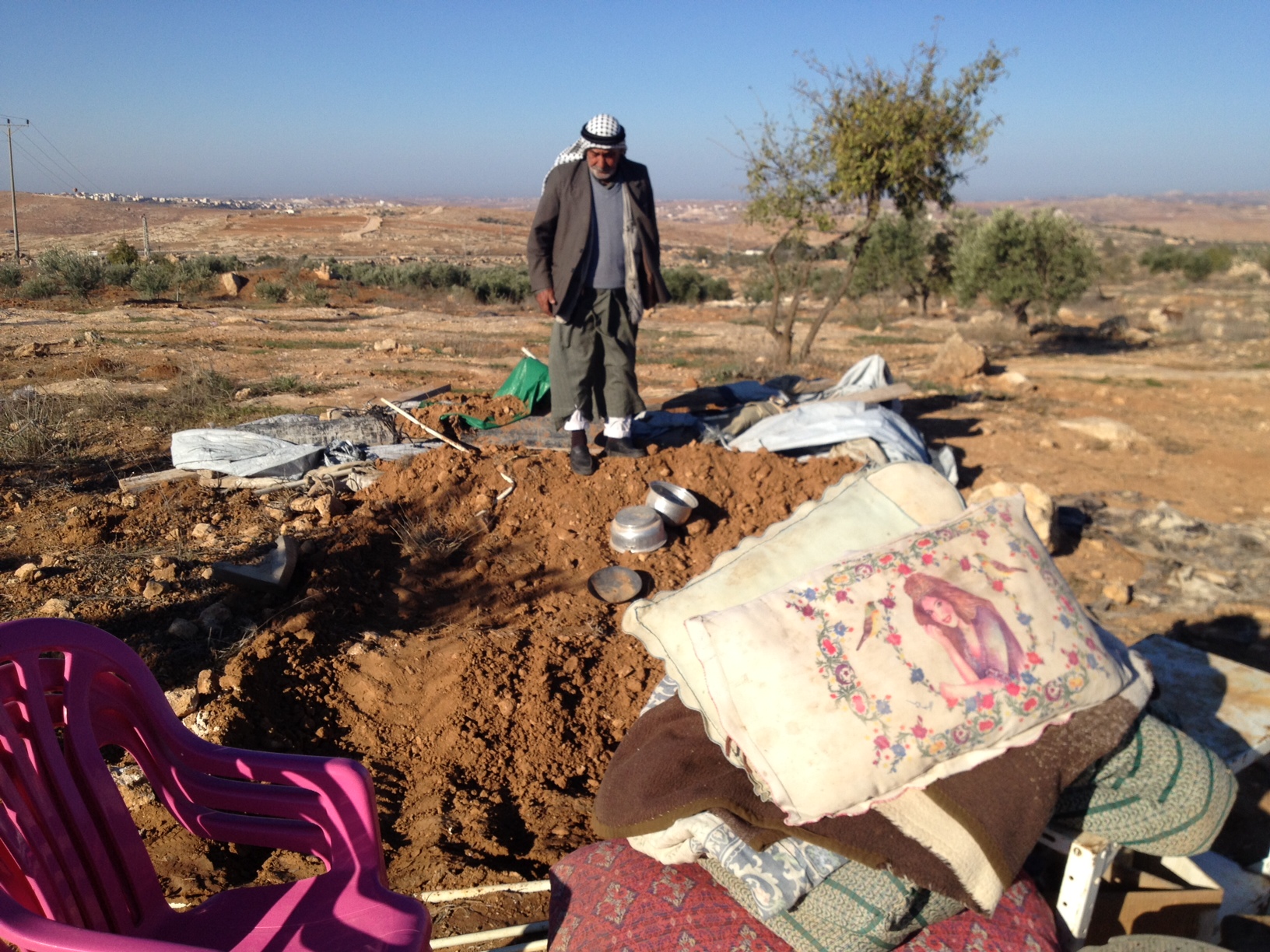Tag: Susiya
-
Tent demolition in Susiya, South Hebron Hills
by Wyatt Black 1 December 2012 | International Solidarity Movement, West Bank On the morning of November 28th, numerous soldiers came to the village of Susiya in the South Hebron Hills, unannounced from the nearby settlement, which is also called Susiya. The army jeeps and construction equipment came rolling in around eight o’clock and quickly…
-
I can’t sleep
By Abu Sarah 31 August 2012 | International Solidarity Movement, West Bank “I can’t sleep. As soon as I close my eyes, I see settlers everywhere.”, says Amer the six years old son of my friend. Omar leaves his mattress and joins me outside, where I’m watching the beautiful full moon. This evening Amer’s father is…
-
House demolitions and forced displacments in Area C
By Abu Sarah 2 September 2012 | International Solidarity Movement, West Bank Demolishing tents donated by the UN On August 28 Israeli occupation forces demolished tents donated by the United Nations (UN) in the Palestinian village of Susiya in the South Hebron hills. This is the second similar demolition within three months. Displacement in Zenuta…

